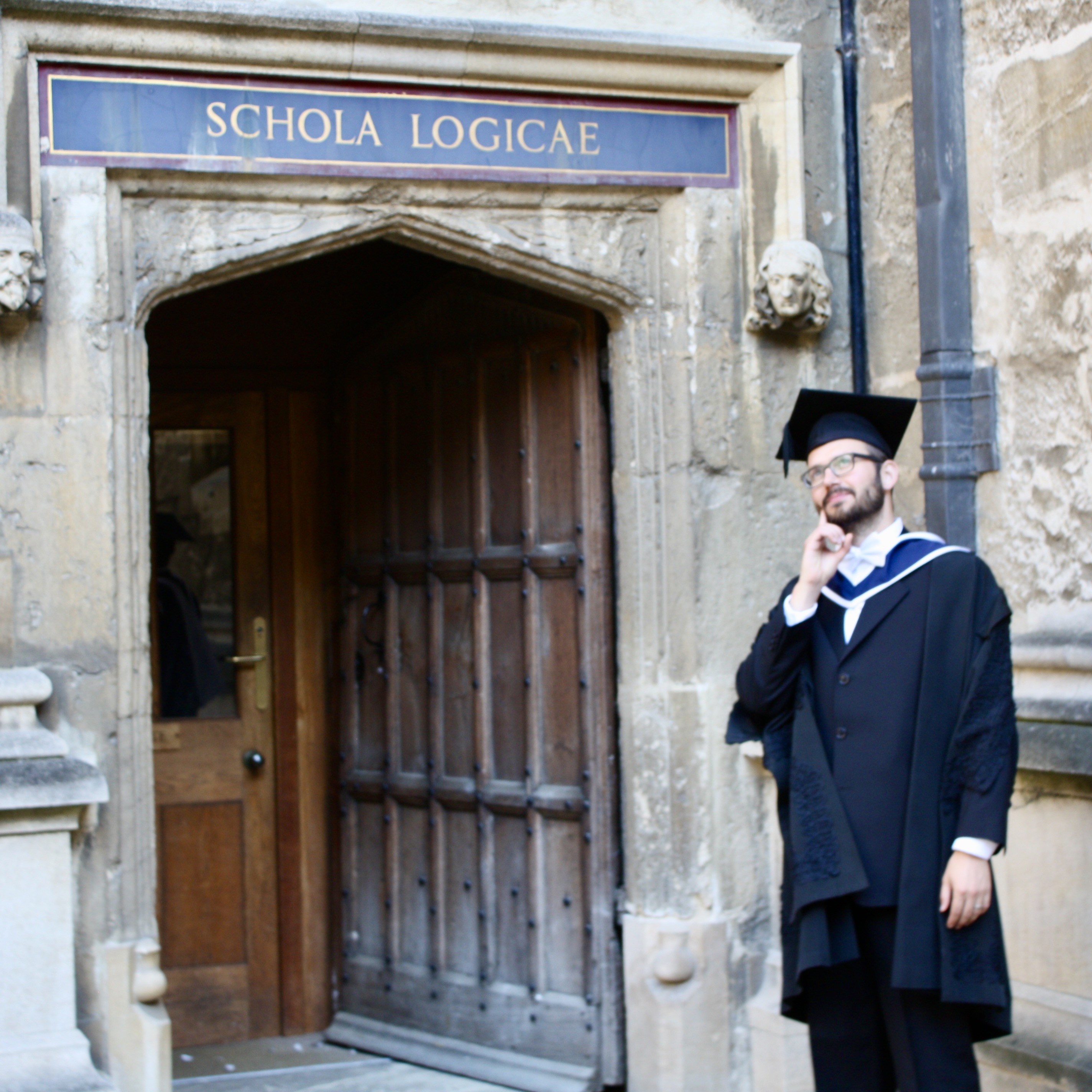
When I went off to college, I was planning on majoring in computer science. The trouble is, I'd also taken to exploring and debating some of the Big Questions, like God's existence, foundations of morality, the ultimate metaphysical nature of the physical universe, etc... Nothing was quite so stimulating as trying to get to the bottom of the cosmological argument, to see whether it really worked or not! So, when the computer science department couldn't figure out where I should start after I asked them on my first day of college, I decided to focus on philosophy for a while. Ultimately, I had such a good time I stuck with it. I've still never made any money as a philosopher, but I certainly feel like a professional! The irony is that I went ahead and became a career technologist anyway.
Education at Stanford
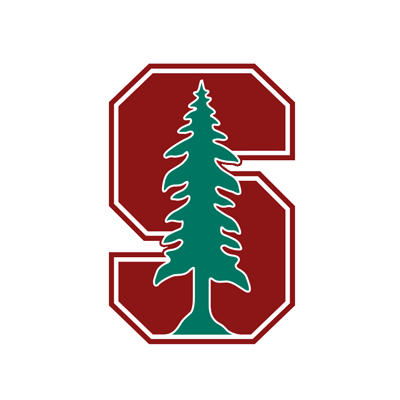
I got my BA (2004) during some wonderful years as an undergraduate at the Stanford Philosophy Department. I can still remember mind-exploding moments in the Philosophy of Mind or Logic courses I took. And the Philosophy of Language seminars no doubt had something to do with my eventual studies in linguistics.
While at Stanford I also took advantage of their co-terminal degree program, which enabled me to work towards and receive an MA in Philosophy as well, also in 2004. As a grad student, I had the rewarding experience of TAing a course on medical ethics, as well as some truly fascinating exposure to the philosophy of quantum mechanics, wherein I finally learned some linear algebra.
In my MA I had several areas of concentration:
- Metaphysics, Epistemology, and the Philosophy of Language - you know, the light stuff.
- Logic - first-order, propositional, or modal, so long as it's formal!
- Philosophy of Science - what assumptions undergird science, as an epistemology and as a practice?
Selected Works

While I've never been published in a peer-reviewed philosophy journal, I have continued to write essays in a philosophical vein from time to time. Here is a selection of pieces written from college on which I think make an interesting point or another. My preferred discussion topics have broadened since my undergrad days to encompass the philosophy of technology, philosophical theology, and more!
The consequences of AI for human personhood and creativity
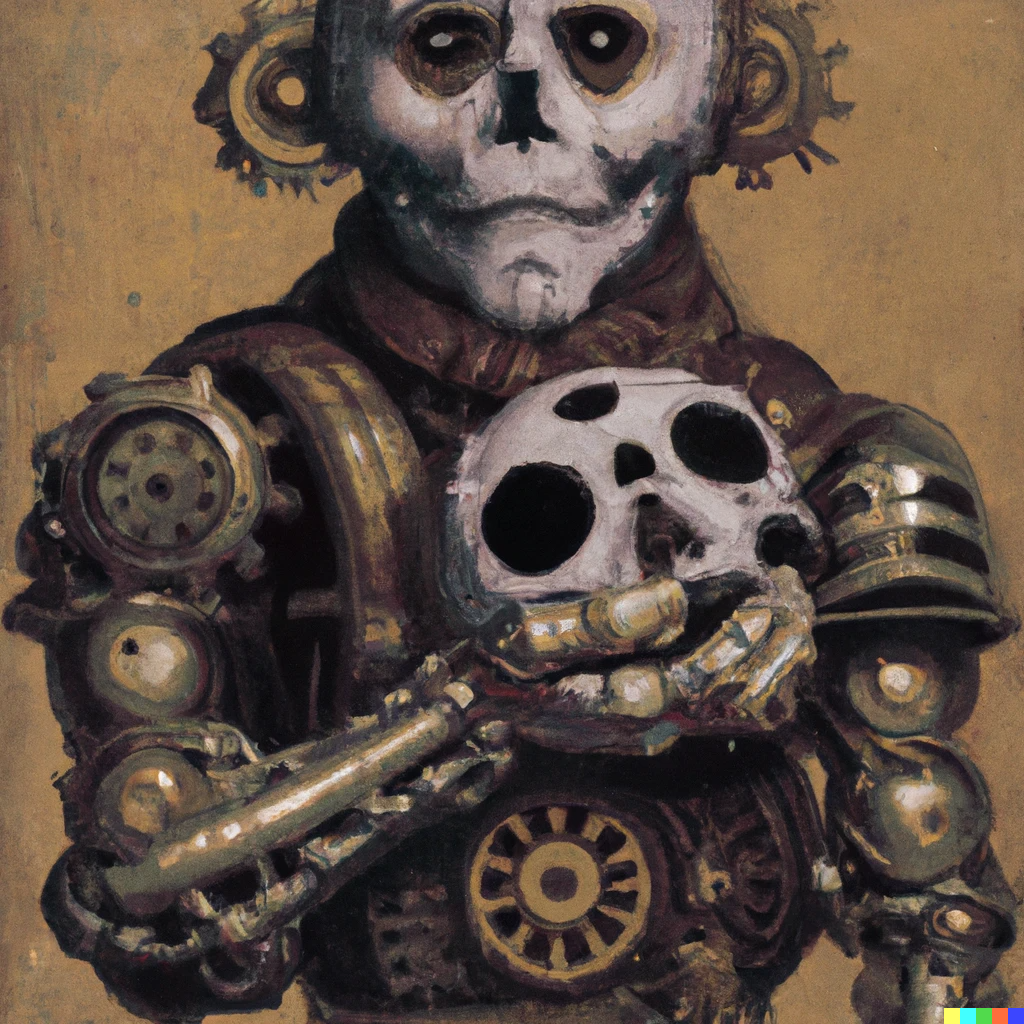
With the recent and sharp rise in the adoption of AI assistants, particular in fields formerly related to creative work, I felt the need to put forward my thoughts on the consequences of AI usage for human creativity. I argue that while AI assistants embody a huge amount of promise in terms of making creative production easier, there are tradeoffs and dangers involved in their use, particularly for our human faculties that we prize most highly.
Covid-19, VR Church, and Ordinary Embodied Human Existence
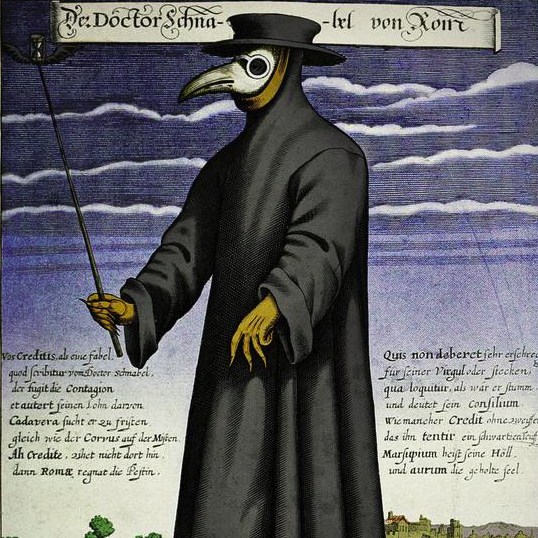
At the beginning of the Covid-19 pandemic there was a lot of discussion around the place of church in public life during quarantine. Online-only services started to pop up, prompting the question for many of when church would make the jump to a completely virtual reality. I wrote this article to explore some of the philosophical and theological foundations of VR and what "VR church" might even mean as a concept. Spoiler alert: I'm not bullish on VR church!
The rising tide: Open source's steady transformation
Together with Matt Germonprez and Sean Goggins, I published this paper in First Monday, a peer-reviewed journal devoted to the topic of the Internet. The abstract is as follows:
What is technology? Do we even know?
I was a guest on this StackOverflow Podcast, where we discussed open source community health, the philosophy of technology, and music. I played a bit of live music for the show, and the full version of the song I played is also available online: When There Was Still Code to Write (Ukulele Version).
The Philosophy and Future of Automation
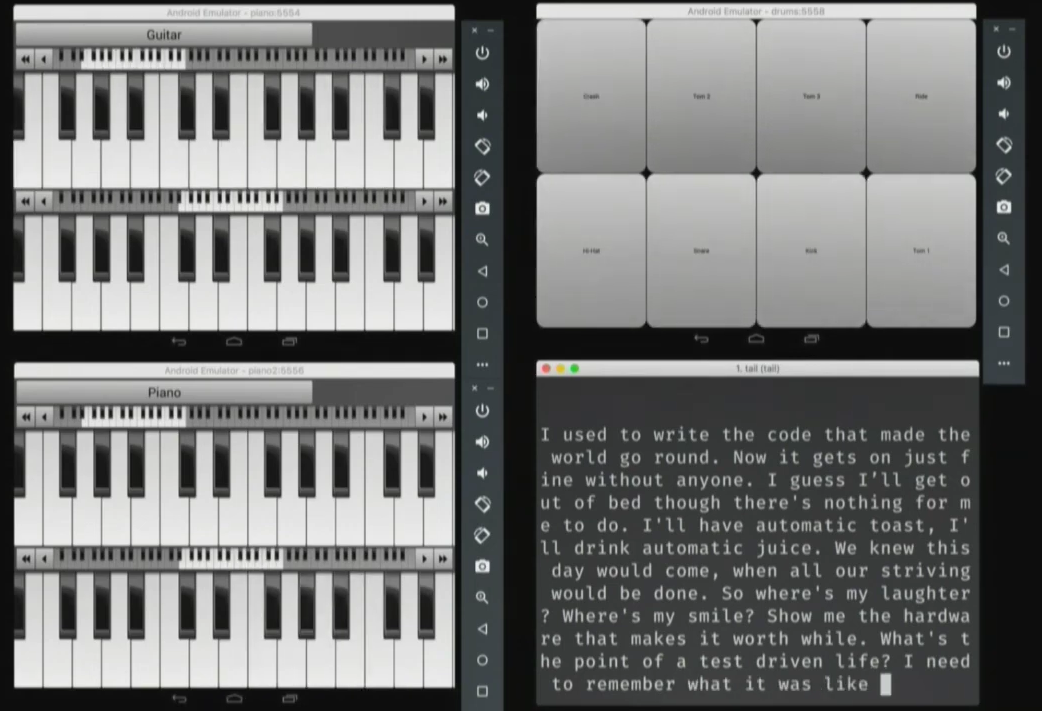
As someone who works as a professional in the field of software automation and automation tools, I wanted to apply some critical philosophy of technology to the specific topic of automation. This SauceCon 2017 keynote talk was a perfect opportunity for such reflection! It culminated in a completely automated performance of a song I wrote with Appium driving various instruments including a text-to-speech synthesizer. Kind of spooky, actually!
Blogging Borgmann
My first foray into the philosophy of technology was via the work of Albert Borgmann, and specifically his book Technology and the Character of Contemporary Life. His ideas were so powerful and fruitful for me that I wanted to get to know them more intimately as well as to make them more easily accessible to non-philosophers. And so I set out to blog through each chapter of his book, summarizing and explicating the important points. Ultimately, this work even opened up the possibility to meet the man himself, and to have the wonderful opportunity to interview Albert at his home in Montana.
A blueprint for irony? Open source software and the Device Paradigm
In 2015 I attended the annual conference of the Society for Philosophy and Technology, in an attempt to learn more about the field of philosophy of technology. I gave this paper at the conference, discussing Albert Borgmann's "Device Paradigm" in conjunction with open source software.
Internet of Nothings: Technology and Our Relationship to the Things in Our World
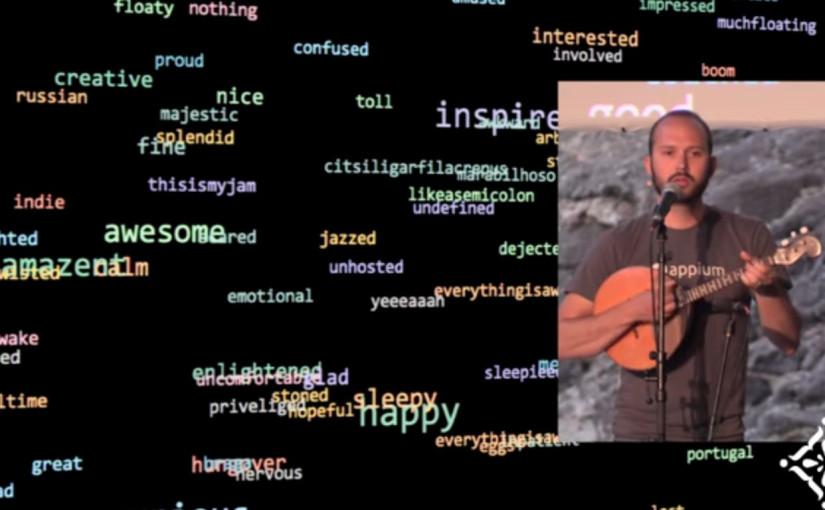
This was my first opportunity to give a presentation at a tech conference that wasn't about a technical topic. Instead, I got to share some of my thoughts (and worries) about the place of technology in our broader lives. In this presentation I tried to elucidate the concept of the "Device Paradigm" and explain why it mattered to us as practitioners of technology. It was also fun to build a realtime demo where attendees could write how they're feeling and have it float across the screen, while I performed an original song written for the event!
Observation Selection Effects and the Fine-Tuning Argument for Cosmic Design
There is a class of arguments for cosmic design which aim to put the design hypothesis at better than chance by pointing at apparently finely-tuned aspects of our universe (without which "higher" life forms like ourselves, or any life at all, would not exist). A common objection to such arguments says that, given our lack of non-finely-tuned universes to compare against, design inferences are barred as a result of an observation selection effect. This paper attempts to defeat that objection (while, it must be said, not offering any additional support to the fine-tuning argument itself).